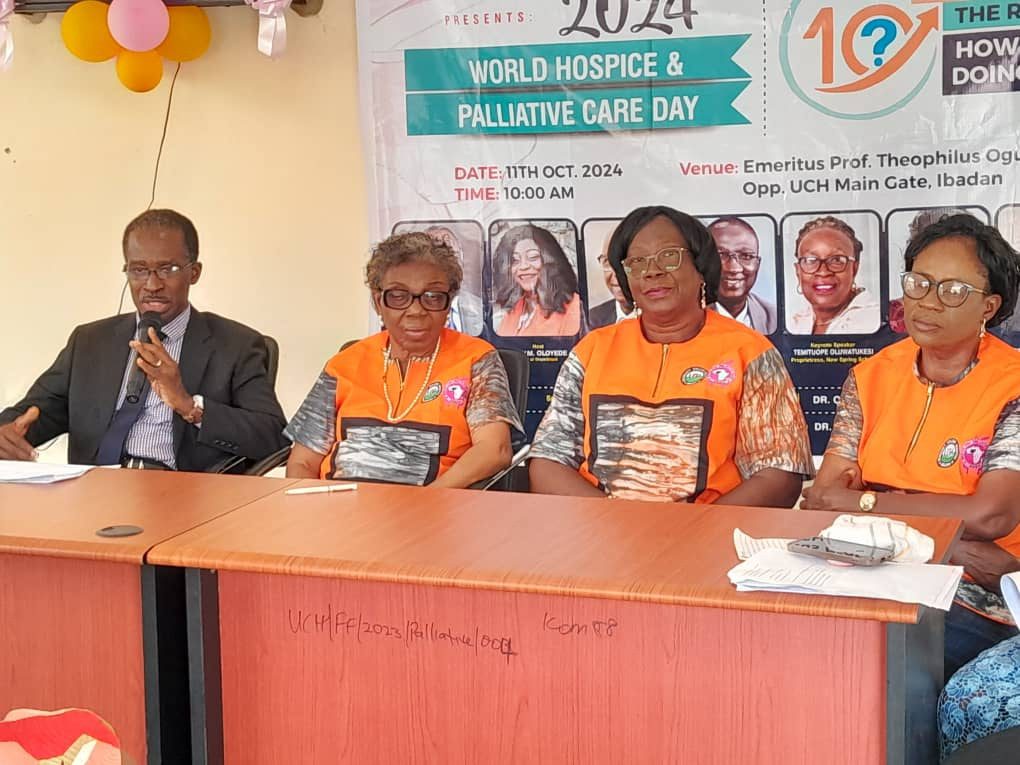


World Hospice & Palliative Care Day: CPCN/UCH marks event, advocates career pathways for students
The CPCN (Centre for Palliative Care Nigeria) in collaboration with the University College Hospital (UCH) joined the rest of the world in celebrating World Hospice & Palliative Care Day on October 12th, spotlighting the urgent need for Nigeria to integrate palliative care into its healthcare delivery system, especially for patients battling life-threatening diseases.
This year’s event coincides with the 10th anniversary of the World Health Assembly’s historic resolution on palliative care, which called on all countries to strengthen this essential service as part of comprehensive healthcare across the life course. Despite global strides in recognising the importance of palliative care, Nigeria still faces significant challenges in making this crucial service available and accessible to patients who need it most.
Palliative care, which focuses on improving the quality of life for patients with serious illnesses by addressing physical, emotional, and psychological suffering, remains largely underdeveloped in Nigeria’s health sector. With increasing rates of cancer, HIV/AIDS, and other life-threatening conditions, the lack of integrated palliative care services often leaves patients and their families struggling with pain management and emotional support.
“Many patients in Nigeria face unnecessary suffering due to the absence of structured palliative care in our health system,” said Prof Olaitan Soyanwo, Founder of CPCN. “We must advocate for policies that prioritise palliative care as part of routine healthcare delivery, from diagnosis to end-of-life care. This will ensure that patients with life-limiting illnesses live with dignity and minimal pain.”
“Currently, CPCN has initiated plans for a new department of palliative care at the University of Ibadan, the curriculum has been approved by the university Senate and we are following other required steps for the actualization. With this, I hereby advocate that the Nigerian government initiates policies that pave the way for career growth in palliative care so that students taking the course at both undergraduate and postgraduate levels will pursue the career.”
Another Staunch Advocate, Prof Ikeoluwa Ajayi from the Department of Epidemiology and Medical Statistics, Faculty of Public Health, UCH emphasised that palliative care should not be seen as an option for only terminally ill patients but as an essential component of ongoing care.
“Many patients can benefit from palliative care alongside curative treatments. It provides pain relief, psychological support, and guidance for patients and families, helping them cope with the complexities of illness.”
A CPCN volunteer, Mrs Oluronke Ajani who is a widow, shared how palliative care services provided her with psychological, emotional, and physical stability during her husband’s battle with a terminal illness. She explained that the palliative care team at UCH offered immense support, ensuring that her husband passed away with dignity.
While Nigeria has made commendable progress in healthcare delivery, integrating palliative care remains a crucial step toward achieving holistic care for patients with life-threatening diseases. Experts at the event say that a well-structured palliative care system can reduce hospital readmissions, lower healthcare costs, and improve the overall quality of life for patients.
The CPCN/UCH is also urging the Nigerian government and other stakeholders to prioritise palliative care by developing a national framework that includes training healthcare professionals, allocating funding for palliative care programs, and raising public awareness about the benefits of this crucial service.



